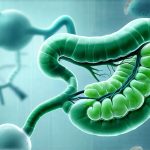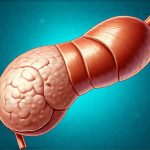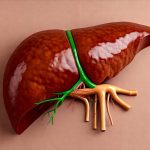The gallbladder, often underestimated, plays a crucial role in digestion. It acts as a storage reservoir for bile, a fluid produced by the liver that’s essential for breaking down fats during digestion. When we talk about digestive health, we frequently focus on gut bacteria and fiber intake, but overlooking the gallbladder can lead to discomfort and potentially more serious issues. Many people don’t even realize their gallbladder is working until something goes wrong—a painful gallstone attack or chronic indigestion are often the first warning signs. Understanding how our dietary choices directly impact this small but mighty organ allows us to proactively support its health and overall well-being.
Mindful eating isn’t just about what we eat, it’s also about how we eat. This holistic approach recognizes that digestion begins long before the first bite, starting with thoughts and intentions around food. It emphasizes slowing down, paying attention to hunger and fullness cues, and choosing foods that nourish our bodies—and specifically support optimal gallbladder function. A diet that prioritizes whole, unprocessed foods, healthy fats in moderation, and sufficient hydration can significantly reduce the burden on the gallbladder and promote its efficient operation. This article will explore how mindful eating practices can be integrated into your daily life to safeguard this vital organ and enhance digestive health.
The Role of Fats & Bile: A Delicate Balance
The gallbladder’s primary function centers around bile, a complex fluid containing cholesterol, bile salts, phospholipids, and bilirubin. Bile is produced in the liver and stored in the gallbladder, concentrating it for efficient release into the small intestine when we consume fats. This process is vital because fat-soluble vitamins (A, D, E, and K) require bile to be absorbed properly. A diet overly restrictive in healthy fats can actually hinder gallbladder function; the organ needs regular stimulation from fat digestion to stay healthy and prevent stagnation of bile. Conversely, a diet excessively high in unhealthy saturated and trans fats puts immense stress on the system, potentially leading to gallstone formation. Finding that sweet spot – moderate intake of good fats – is key.
The type of fat matters immensely. Prioritizing unsaturated fats like those found in avocados, olive oil, nuts, and seeds supports gallbladder health far better than relying on processed foods containing trans fats or excessive amounts of saturated fats from red meat and dairy. Furthermore, the way we consume fats also impacts digestion. Rapidly consuming large quantities of fatty foods overwhelms the gallbladder’s capacity to release bile efficiently, increasing the risk of digestive discomfort. Mindful eating encourages savoring smaller portions and allowing the body time to process each meal effectively.
It’s important to note that a diet consistently lacking in fiber can also contribute to gallbladder issues. Fiber helps regulate cholesterol levels and promotes healthy digestion overall, indirectly supporting gallbladder function. Think of it as a synergistic relationship – fats stimulate bile release, while fiber aids in its efficient processing and elimination. This harmonious interplay is essential for maintaining a healthy digestive system.
Understanding Gallbladder-Friendly Foods
A cornerstone of mindful eating for gallbladder health involves choosing foods that support optimal digestion and minimize strain on the organ. This doesn’t mean deprivation; it means making informed choices based on understanding how different foods affect your body.
- Fruits & Vegetables: Rich in fiber, vitamins, and antioxidants, these provide essential nutrients without overburdening the digestive system. Leafy greens like spinach and kale are particularly beneficial due to their high chlorophyll content, which aids detoxification.
- Lean Proteins: Opt for lean sources of protein such as fish, poultry (skinless), beans, and lentils. These are easier to digest than fatty cuts of meat and provide essential amino acids.
- Healthy Fats in Moderation: Include sources like avocados, olive oil, nuts, seeds, and fatty fish (salmon, mackerel) but be mindful of portion sizes.
- Whole Grains: Choose whole grains over refined carbohydrates to increase fiber intake and stabilize blood sugar levels. Examples include quinoa, brown rice, and oats.
Avoiding highly processed foods, sugary drinks, and excessive amounts of red meat is also crucial. These contribute to inflammation and can disrupt the delicate balance within the digestive system. Additionally, paying attention to food sensitivities can be incredibly beneficial; identifying and eliminating trigger foods that cause bloating or discomfort reduces overall stress on the gallbladder.
The Importance of Hydration & Fiber Intake
Water is fundamental for all bodily functions, including digestion. Adequate hydration ensures bile remains fluid enough to flow freely from the gallbladder and prevents stagnation. Aiming for at least eight glasses of water daily can significantly support this process. Herbal teas, such as ginger or dandelion root tea (consult with a healthcare professional before incorporating herbal remedies), can also contribute to hydration while offering additional digestive benefits.
Fiber plays a dual role in gallbladder health. As previously mentioned, it helps regulate cholesterol levels, reducing the risk of gallstone formation. But fiber also promotes peristalsis – the wave-like contractions that move food through the digestive tract – ensuring efficient bile flow and preventing constipation, which can put extra pressure on the system. Increasing fiber intake gradually is essential to avoid bloating or discomfort.
- Gradual Increase: Slowly add more fiber-rich foods to your diet over several weeks, allowing your body time to adjust.
- Combine with Hydration: Drink plenty of water when increasing fiber intake to prevent constipation.
- Variety is Key: Incorporate a variety of fiber sources – fruits, vegetables, whole grains, legumes – to obtain different types of fiber and maximize benefits.
Mindful Eating Practices for Enhanced Digestion
Beyond dietary choices, how we eat profoundly impacts gallbladder health. Rushing through meals or eating while distracted disrupts the digestive process and places unnecessary stress on the organ. Here are some mindful eating techniques to incorporate into your daily routine:
- Slow Down: Chew each bite thoroughly before swallowing. This allows for better breakdown of food and reduces the workload on the digestive system.
- Minimize Distractions: Turn off the TV, put away your phone, and focus solely on your meal. This enhances awareness of hunger and fullness cues.
- Eat When Truly Hungry: Avoid eating out of boredom or emotional stress. Pay attention to your body’s signals and eat only when you are genuinely hungry.
- Portion Control: Be mindful of portion sizes, particularly with fatty foods. Smaller, more frequent meals can be easier on the gallbladder than large, heavy ones.
- Practice Gratitude: Before each meal, take a moment to appreciate the food you’re about to consume and its nourishing properties. This fosters a positive relationship with food and promotes mindful consumption.
Mindful eating isn’t about strict rules or restrictions; it’s about cultivating awareness and making conscious choices that support your overall health and well-being. By integrating these practices into your daily life, you can actively nurture gallbladder health and experience improved digestion and vitality. Remember to always consult with a healthcare professional for personalized advice tailored to your individual needs and circumstances.


















